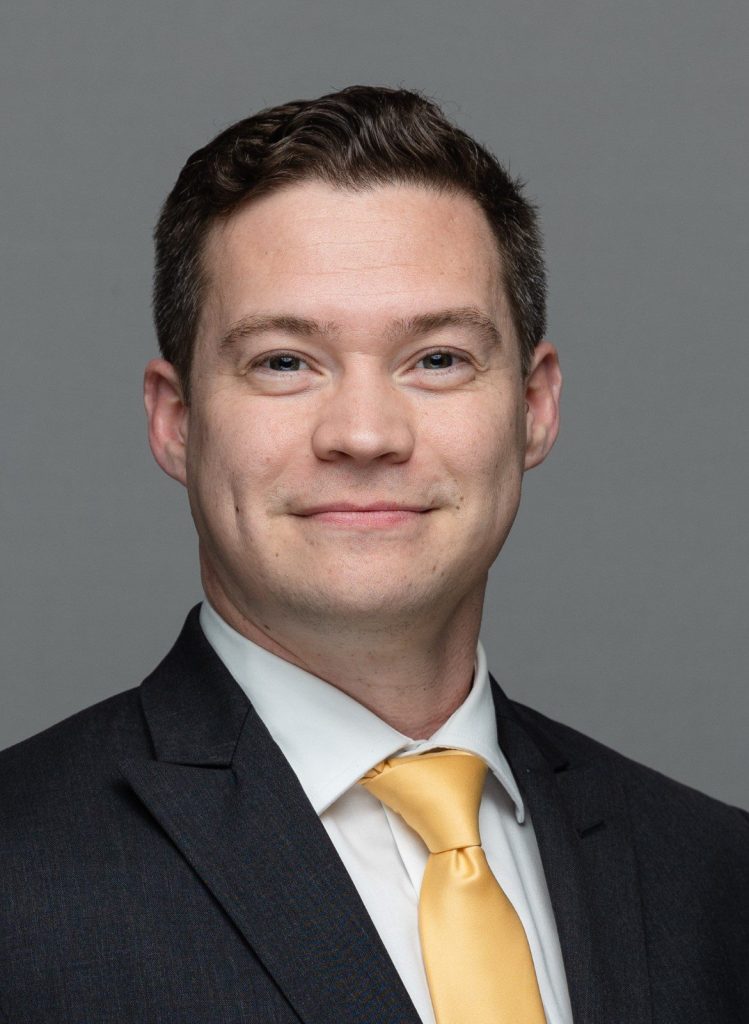Pegasus Student Awardee Propelled by Love for Discovery and Adventure
Department of Physics Ph.D. student Eric Switzer earned the esteemed Order of the Pegasus award last year for his outstanding academic achievements. Keep reading to learn more about his Knight journey and the advice he has for Physics undergraduate students.
Why did you choose to study Physics at UCF?
What first caught my eye on choosing UCF was my family’s prior history with the college. I moved to Orlando in 2016 when my wife, Amber N. Switzer, decided to finish her undergraduate degree at UCF. I was working for my former employer (AvMed Health Plans, Inc., and then SantaFe HealthCare) at that time.
During our time in Orlando, we built strong ties to the Baldwin Park community, and we became familiar with the UCF campus and faculty. With the encouragement of my leader and mentor at the time, Jennifer Blades, I “dipped my toes in the water” in a few Physics classes at UCF. With the help of some Physics faculty (including Professor Aniket Bhattacharya and Professor Richard Klemm), I found that I could continue where I left off in my undergraduate studies at Portland State University in 2010 and pursue a career in Physics research. The Physics department is also very active in the local community (like the APS Bridge Program) and the college supports those efforts.
That active support made me feel like I could make a substantial impact on my community if I joined. The fact that the department went the extra mile to take on a non-traditional student, with a focused plan for graduation, sealed the deal. What helped my decision to stay on, complete my studies, and earn my Ph.D. was my advisor and mentor, Trustee Chair Professor and Pegasus Professor Talat S. Rahman. Her dedication to the community and constant drive to discover inspired me to do the same.
What keeps you motivated to achieve your goals?

Primarily, my love for discovery, adventure, and fundamental science. Studying my small part of the expansive and complicated physical nature of the world is awe-inspiring, daunting and humbling, and it’s even better with collaborators! I also want to give back to the community that supported me throughout my journey, and hopefully inspire other young scientists towards research. Finally, my son and my wife continue to support me in chasing my dream, so that keeps me going!
What advice do you have for Physics undergraduate students?
I have a selected list of advice for students:
- Be careful with your time – it’s your most valuable resource. Don’t plan your day around the small things, like busy work, and instead focus your week around working on several top priorities that advance you towards your goals.
- This is your time to really understand the bedrock of Physics research. Aiming to pass a test in your classes may work in the short-term, but making a serious effort toward understanding and being comfortable with topics like classical mechanics, electromagnetism, thermodynamics and quantum mechanics will set you up for long-term success. Be curious: having questions as you study these topics is good, and you should follow through to get an answer.
- Connect with peers and join Physics societies. It will make learning Physics much easier, provide fellowship and connect you to new experiences and opportunities.
- If you’re aiming for a career in Physics research, you can show that you will be a valuable addition by helping with research while working on your degree. Search up the latest papers from some professors you like at UCF, read and try to understand them and then ask if you can volunteer in their research or lab. If you get the honor of working with them and work hard, see if you can volunteer to present a poster at an upcoming conference. This can open you to many new experiences and opportunities.
- Find a few mentors: those scientists or professors whom you may only talk to once a month for an hour at most, but who also provide invaluable guidance and advice. These small conversations can be life changing.
- Humble yourself. You will never know everything, but you can learn a sub-topic so deeply that you become a recognized expert. Becoming an expert requires collaborating, communicating and presenting, so working on that now and working with effective teams will make things easier in the future.
- Physics can be difficult, so give yourself grace when you fail. It’s essential that you learn from each mistake.
- Don’t be afraid of uncertainty, either in your path or your research, because it is natural in our field. Instead, be disciplined on what you have control over and how you can take advantage of opportunities when they arrive.
What are your post-graduation goals?
I’m finalizing some research projects that I’m currently working on with Prof. Rahman and other collaborators. I plan to continue building my research enterprise and continue working in an academic position at a university or a research scientist position at a U.S. national laboratory, researching novel quantum architectures. I intend to continue my national and international collaborations, as teamwork is the only way forward to build the next generation of quantum computers and quantum sensors.
